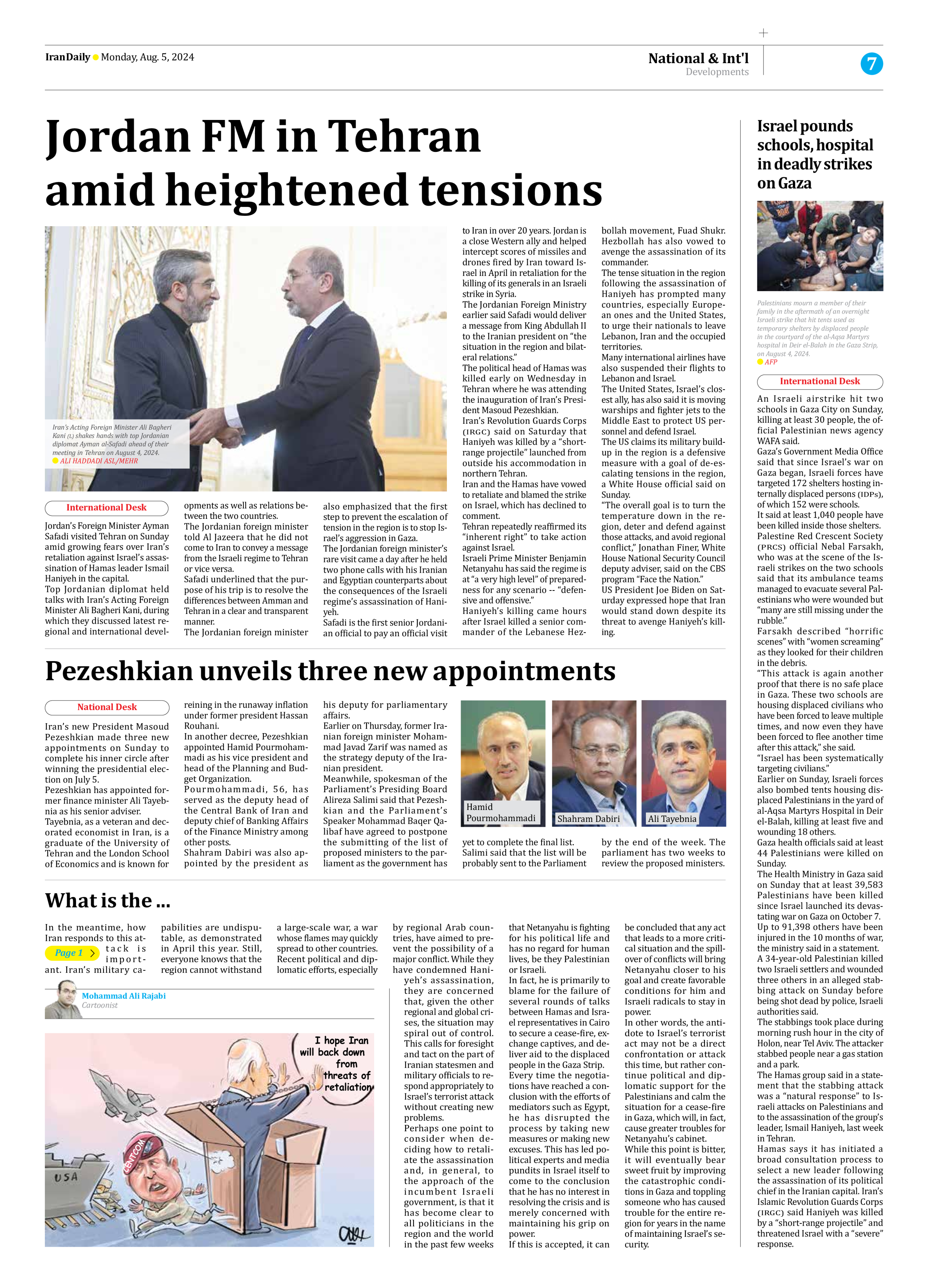
Copy in clipboard...
Jordan FM in Tehran amid heightened tensions
Top Jordanian diplomat held talks with Iran’s Acting Foreign Minister Ali Bagheri Kani, during which they discussed latest regional and international developments as well as relations between the two countries.
The Jordanian foreign minister told Al Jazeera that he did not come to Iran to convey a message from the Israeli regime to Tehran or vice versa.
Safadi underlined that the purpose of his trip is to resolve the differences between Amman and Tehran in a clear and transparent manner.
The Jordanian foreign minister also emphasized that the first step to prevent the escalation of tension in the region is to stop Israel’s aggression in Gaza.
The Jordanian foreign minister’s rare visit came a day after he held two phone calls with his Iranian and Egyptian counterparts about the consequences of the Israeli regime’s assassination of Haniyeh.
Safadi is the first senior Jordanian official to pay an official visit to Iran in over 20 years. Jordan is a close Western ally and helped intercept scores of missiles and drones fired by Iran toward Israel in April in retaliation for the killing of its generals in an Israeli strike in Syria.
The Jordanian Foreign Ministry earlier said Safadi would deliver a message from King Abdullah II to the Iranian president on “the situation in the region and bilateral relations.”
The political head of Hamas was killed early on Wednesday in Tehran where he was attending the inauguration of Iran’s President Masoud Pezeshkian.
Iran’s Revolution Guards Corps (IRGC) said on Saturday that Haniyeh was killed by a “short-range projectile” launched from outside his accommodation in northern Tehran.
Iran and the Hamas have vowed to retaliate and blamed the strike on Israel, which has declined to comment.
Tehran repeatedly reaffirmed its “inherent right” to take action against Israel.
Israeli Prime Minister Benjamin Netanyahu has said the regime is at “a very high level” of preparedness for any scenario -- “defensive and offensive.”
Haniyeh’s killing came hours after Israel killed a senior commander of the Lebanese Hezbollah movement, Fuad Shukr. Hezbollah has also vowed to avenge the assassination of its commander.
The tense situation in the region following the assassination of Haniyeh has prompted many countries, especially European ones and the United States, to urge their nationals to leave Lebanon, Iran and the occupied territories.
Many international airlines have also suspended their flights to Lebanon and Israel.
The United States, Israel’s closest ally, has also said it is moving warships and fighter jets to the Middle East to protect US personnel and defend Israel.
The US claims its military buildup in the region is a defensive measure with a goal of de-escalating tensions in the region, a White House official said on Sunday.
“The overall goal is to turn the temperature down in the region, deter and defend against those attacks, and avoid regional conflict,” Jonathan Finer, White House National Security Council deputy adviser, said on the CBS program “Face the Nation.”
US President Joe Biden on Saturday expressed hope that Iran would stand down despite its threat to avenge Haniyeh’s killing.







